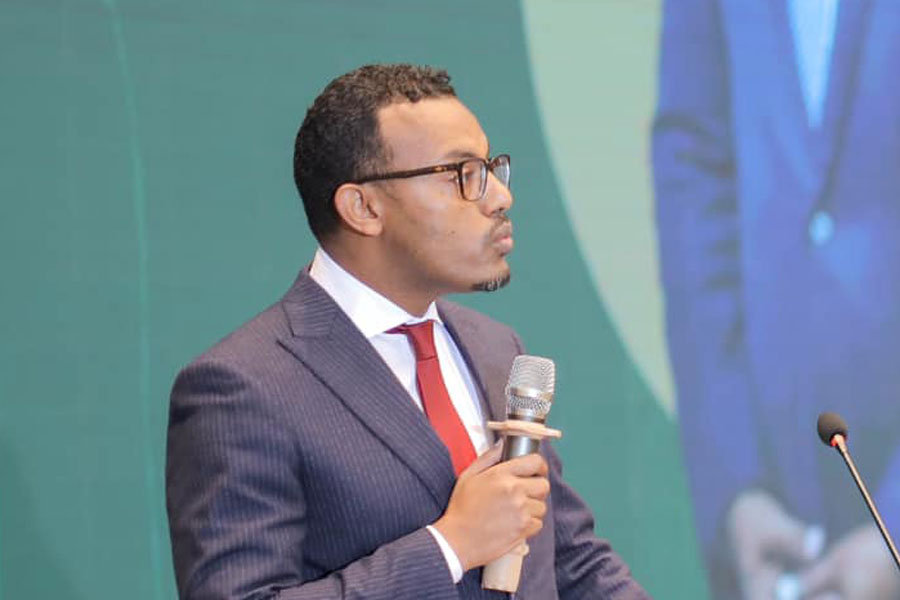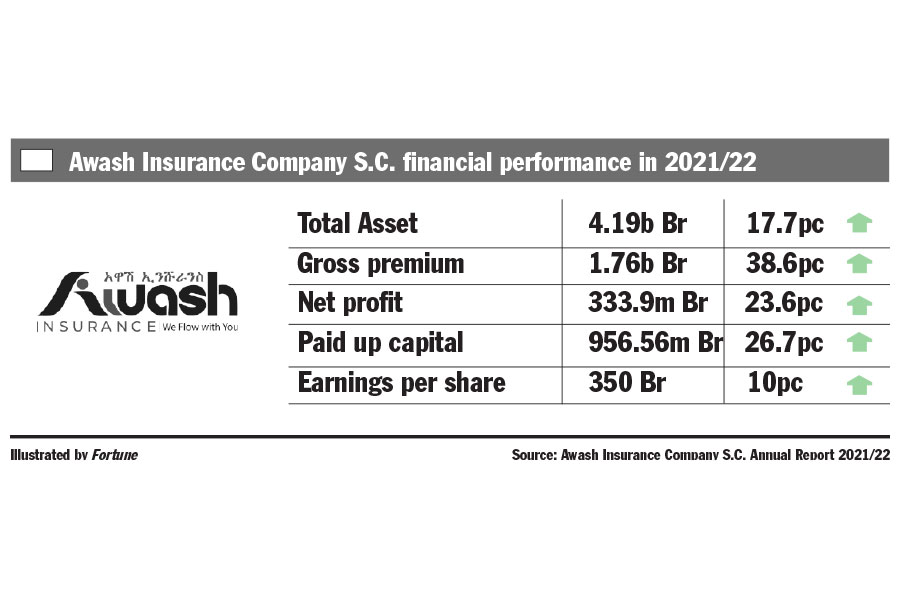
May 18 , 2024
By Hintsa Andebrhan
Two weeks ago, the U.S. State Department made a customary diplomatic trip to address the political crisis in several countries in the Horn of Africa, aspiring to shape the region according to Washington’s strategic interests.
The Special Envoy for the Horn of Africa, Mike Hammer, travelled from Washington to Nairobi, engaging in discussions with senior Kenyan officials about the political instability in Ethiopia, particularly implementing the Pretoria Peace Accord. He held talks with senior officials from the African Union (AU) in Addis Abeba, where he also urged Ethiopia’s leaders to end the violence and displacement of civilians due to the conflicts in the Amhara and Oromia regional states.
Simultaneously, Tom Perriello, the special envoy for Sudan tasked with coordinating U.S. policy on Sudan, visited Uganda, Kenya, Egypt, and Saudi Arabia. He met with Washington’s main partners in these countries to advance efforts to end the Sudanese conflict. Meanwhile, J. Peter Pham, former U.S. ambassador and special envoy for the Sahel region, is reportedly shaping White House policy on Chad and the broader Sahel region.
Washington’s recent moves demonstrate its determination to fortify and sustain its national interest in and toward the African continent. However, questions arise about the AU’s increasing hope of looking towards the White House and other Western capitals for solutions to the political turmoil in its member states rather than adhering to its charter designed to address Africa’s problems. Its predecessor, the Organisation of African Unity (OAU), was formed in May 1963 and later transformed into the African Union 39 years later to make the continent a relevant international political and economic player. Yet, the current political and economic crises besieging African countries challenge this vision.
The Democratic Republic of Congo, for instance, remains entrenched in a devastating crisis, part of a series of civil wars that have roots in Cold War proxy conflicts between the Soviet Union and the United States. Following the assassination of President Laurent-Desire Kabila in 2001, the country’s political situation has worsened. Continuous conflicts, health crises like Ebola, and persistent instability plague the country, with the AU offering little beyond lip service.
In Libya, the situation took a drastic turn in March 2011 when a NATO-led coalition initiated a military intervention, legitimised by UN Security Council Resolution 1973. It resulted in the slaying of its leader and the eventual collapse of the Libyan state. Despite the African Union’s Charter, the organisation failed to support the Libyan people during their trying times.
Somalia has also been a perpetual concern for the AU since 1991, yet the AU has struggled to resolve the crisis in Mogadishu. The renewed instability and acts of terrorism have yielded the AU’s efforts largely ineffective, often overshadowed by Western countries’ proposals that fail to address the root causes of the conflict.
The longstanding conflict between Ethiopia and Eritrea, which persisted for two decades in a state of neither war nor peace, was ultimately influenced by former President Trump’s bold policy shift. Without this intervention, the AU might have continued to struggle to broker peace between the two countries.
These are a few illustrations of AU’s haplessness in the face of the continent’s myriad political and economic disasters. Its leaders increasingly rely on Western guidance to respond to the upheavals, putting the efficacy and institutional independence in question to meet its foundational objectives. Moussa F. Mahamat, the chairperson of the African Union Commission, is set to step down early next year. Djibouti, Kenya, and Somalia have put their candidates forward to succeed him. However, merely changing the chairperson is unlikely to bring change worth discussing.
The founders of the OAU envisioned an organisation dedicated to freeing Africans from colonialism, preserving the sovereignty and territorial integrity of member countries, and upholding African dignity. Yet, under Mahamat, the AU appears to have fallen short of this vision, often seen as ineffective in addressing the continent’s critical issues.
Why has the AU become a Union that is good for nothing?
The answer lies in its incapacity to assert autonomy, dependence on external actors for solutions, and failure to implement its charter effectively. Without a significant change in strategy and leadership, the AU risks remaining in the shadow of Western influence, unable to fulfil its potential as a unifying force for the continent. The continent requires a fundamental shift in approach to achieve political and economic stability.
Hintsa Andebrhan (hintsa1974@gmail.com) worked as a researcher with the United Nations Population Fund and IPAS International Ethiopia.
PUBLISHED ON
May 18,2024 [ VOL
25 , NO
1255]



Fortune News | Nov 16,2024

Commentaries | Dec 24,2022

Radar | Dec 25,2023

Addis Fortune | Nov 04,2020

Radar | Feb 27,2021

My Opinion | Jul 20,2024

Fortune News | Jun 10,2023

My Opinion | Apr 13,2024

News Analysis | Dec 04,2021

My Opinion | 131497 Views | Aug 14,2021

My Opinion | 127853 Views | Aug 21,2021

My Opinion | 125831 Views | Sep 10,2021

My Opinion | 123461 Views | Aug 07,2021

Dec 22 , 2024 . By TIZITA SHEWAFERAW
Charged with transforming colossal state-owned enterprises into modern and competitiv...

Aug 18 , 2024 . By AKSAH ITALO
Although predictable Yonas Zerihun's job in the ride-hailing service is not immune to...

Jul 28 , 2024 . By TIZITA SHEWAFERAW
Unhabitual, perhaps too many, Samuel Gebreyohannes, 38, used to occasionally enjoy a couple of beers at breakfast. However, he recently swit...

Jul 13 , 2024 . By AKSAH ITALO
Investors who rely on tractors, trucks, and field vehicles for commuting, transporting commodities, and f...

Jun 28 , 2025
Meseret Damtie, the assertive auditor general, has never been shy about naming names...

Jun 21 , 2025
A well-worn adage says, “Budget is not destiny, but it is direction.” Examining t...

Jun 14 , 2025
Yet again, the Horn of Africa is bracing for trouble. A region already frayed by wars...

Jun 7 , 2025
Few promises shine brighter in Addis Abeba than the pledge of a roof for every family...

Jun 29 , 2025
Addis Abeba's first rains have coincided with a sweeping rise in private school tuition, prompting the city's education...

Jun 29 , 2025 . By BEZAWIT HULUAGER
Central Bank Governor Mamo Mihretu claimed a bold reconfiguration of monetary policy...

Jun 29 , 2025 . By BEZAWIT HULUAGER
The federal government is betting on a sweeping overhaul of the driver licensing regi...

Jun 29 , 2025 . By NAHOM AYELE
Gadaa Bank has listed 1.2 million shares on the Ethiopian Securities Exchange (ESX),...